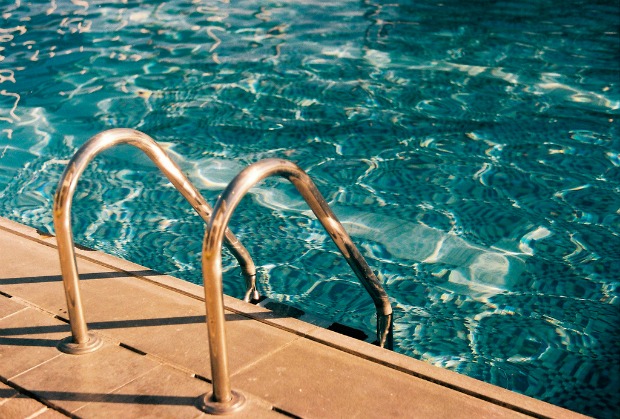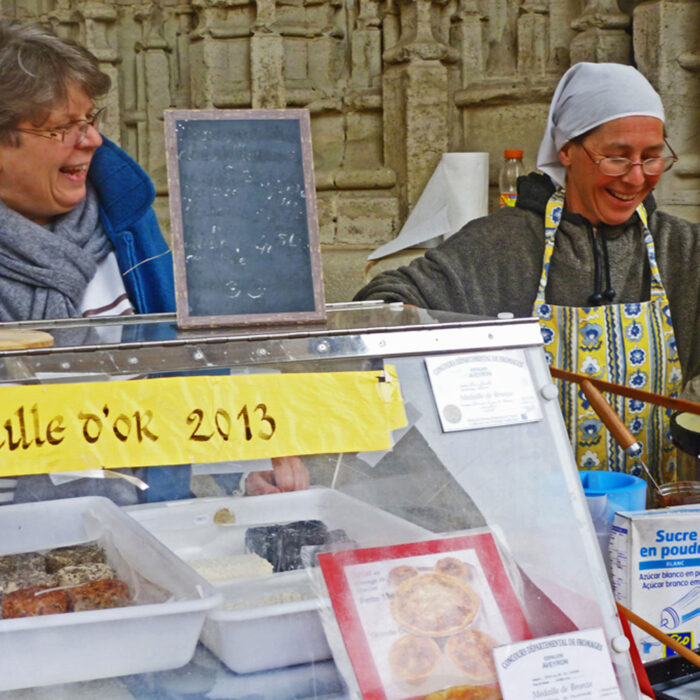You have no items in your cart. Want to get some nice things?
Go shopping
Like many others, I had lost my job and suddenly was not as well off as I used to be. I moved east of the river, to a poorer town – where, however, I soon hit upon a route for my afternoon runs that I thought pleasant enough, mainly because it led past a picturesque lake. It was early summer, but I never saw anyone swimming in the turbid waters of the lake, nor was I about to do it myself. But just a little farther along that same street I noticed, boxed in by a high chain-link fence, the small but blissfully blue rectangle of a swimming pool, apparently on the grounds of a high school.
When I eventually made inquiries, I learned that the pool was open to all town residents, and for a sum so nominal that even someone almost reduced to counting pennies could not begrudge it. Still, I feared that the experience might prove too dispiriting. At the pricey apartment complex where I had lived before, a serene, meticulously maintained pool courtyard had been a favourite spot of mine, a site either of solitary idylls or of lazy flirtations. I could not see how a decrepit municipal pool, one probably teeming at times with roughhousing kids from poor neighbourhoods, might serve me as well. Might it not simply remind me of how banished I was from the good life?
To use the pool I would have to buy a pass from the town’s Rec Department, which was across the street in a drab, squat old brick building. I imagined venturing into that building like some wretched petitioner to seek through undoubtedly funky hallways for some misanthropic clerk who would bureaucratically demand proof that I was indeed a resident, perhaps in the form of bills sent to me at my new address, the bills that were beginning to pile up unpaid. The Rec Department, I decided, would serve to make me still more conscious of how wrecked my life was.
Yet, as the summer wore on into the dog days, I increasingly missed the daily refreshment of a plunge into cool blue water, so that I eventually gave in, hopping onto my bicycle one afternoon and riding off with a beach towel and a book in my satchel. I was using the bike not only for the sake of exercise or pleasure but also because gas had doubled in price in the last couple of weeks, although there was, to be sure, a pleasant novelty in having to use the bike as a form of transportation – and also a pleasant nostalgia, since it harked back to my childhood.
The Rec Department proved to be quite as dingy and gloomy inside as I had feared, with the smell of 40 or even 50 years ago, when it could not have looked much different. Yet the place had a reception desk and, behind it, a genial young receptionist who sold me the pool pass, demanding from me nothing more than a couple of bucks, going further only to cheerfully tell me that for $50 I could have year-round access to all of the town’s recreational facilities, including indoor pools in winter and the community Y gym. I left thinking about it, reflecting, once more, on how possible it might be to live well enough on much less than I had been making.
At the pool, I leaned my bicycle against the chain-link fence in a spot where I could keep an eye on it from inside: I feared it might present a temptation for the underprivileged kids who were no doubt the principal users of the pool. And by using the pool was I not declaring myself a new member of the underprivileged class? In truth, I felt as if I were merely impersonating one, even a little as if I were stealing from the underprivileged during a mere hiccup in my own fortunes.
But there was nothing in the least underprivileged-looking about the lifeguards who greeted me with sunny smiles and doll-like voices as I walked in, an entire team of them, at least four girls and one boy, two of the girls blonde, the others perkily brunette, all of high school age. None reflected what I had read about the town’s school system: that it was predominantly filled with minority students and beset by problems more typical of inner-city schools. I judged the lifeguards to be well-off private-school students who must have landed their pool jobs because of connected parents.
They did not have much to do, since the pool otherwise was almost deserted in spite of the perfect swimming and sunbathing weather. Using it were only an overweight brown-skinned boy and two young white girls, the latter apparently watched over by a pot-bellied, bearded man seated on the edge of the pool, his dangling, thinly haired, pale legs emerging from black shorts to be fractured at the shin by the surface of the water, continuing below the water in a still more livid shade.
Where to put down my towel? Nothing was provided by way of a place for it, no lounge chairs, no grassy area. The pool, after all, amounted to no more than a cement in-ground tank covered in peeling blue paint and surrounded by a strip of pavement. But when I stretched out on the pavement beside the pool, I found it surprisingly comfortable – and pleasantly evocative of my childhood somehow.
Though it was already late afternoon, within minutes of lying down I was hot enough to take my first plunge. I had the entire deep end to myself and cavorted in it for a while before turning onto my back and floating, the sun warm on my wet skin, my eyes filled with the high blue of the sky, with the white clouds that seem to be reclining sunbathers, too. I found I even enjoyed seeing the top of that ugly enclosing chain-link fence bob into view; I felt pleasantly caged by it, set apart in my indolent, childish pleasure from the rest of that grim working town.
After a while, I set out along one of the lanes, eyes shut against the chlorine but confident that I was tracing a straight course. Then I touched another body: one of the two girls I had noticed in the water earlier had gotten in my way, and my stroking hand had brushed against her rear. I apologized but thought she looked alarmed. Such public pools no doubt attracted perverts. Had I just rendered myself a suspect stranger in their eyes? I overheard the bearded man say, “Yeah, I saw that!” Was he really referring to my touching the girl? When I reached the other end after a few more strokes, I turned to look at him. I was relieved to see that he was not looking at me, as was no one else; he must have simply been referring to some stunt or other that his children had pulled in the water. To be on the safe side, though, I waded over to a farther lane to be sure of avoiding the children on my return lap.
I lay down on my back to dry. A plane was just then flying overhead and as I watched it glinting in the sun like a daylight star, I thought of how visible swimming pools are from a plane window, how inviting in their vibrant blueness even from that height. One of the lifeguards walked by just then and, because she smiled when I glanced up at her, because I noticed how her shorts were rolled down to reveal the high cut of a one-piece swimsuit, I fell to wondering about the sex lives of these girls, about how evolved their erotic imaginations might be, how susceptible, for instance, to the idea of an illicit, coming-of-age fling with a rather worldly older man whom fortune, or, more precisely, misfortune, had brought into their midst. But I soon brought this train of thought to a halt. Decadent erotic adventures properly belonged to my former life. What pleasures I might unearth in my straitened present circumstances had to be simple – virtuous, redeeming. Vice might be the spice of a highlife, but I suspected it could spell perdition for a lowlife.
And even as I thought this I overheard the bearded man, who was now in the water, beginning to chat to another of the lifeguards. He asked her what her name was, teased her about never having seen her go into the water herself, wondered if he might pull her in, or if might he at least splash her. The lifeguard sounded increasingly wary in her replies, no doubt sensing that the man’s playfulness was not entirely innocent, never mind that he had two children who were apparently his daughters with him. Earlier I had feared he might be judging me a pervert; now it was my turn to judge him to be one.
I took up the book I had brought with me, Rousseau’s Reveries of a Solitary Walker, in which, as if the book were one of those sacred tomes which the superstitious consult for magically apropos guidance, I soon came across this passage:
The various periods of short-lived prosperity that I have enjoyed have left me with almost no agreeable memories of deep and lasting impressions: by contrast, in all the hardships of my life I was invariably full of affectionate, touching and delightful emotions which poured a healing balm over the wounds of my injured soul and seemed to change its pains into pleasures.
I went for another swim, and by the time I got out of the water the sun’s rays had begun to weaken. Only then did I remember my bicycle. But it was where I had left it, unmolested, and I rode it home at a contented pace, feeling at 48 as if I were a blameless 12-year-old again. When my fall from grace had occurred, I had been terrified, but I should have remembered, I told myself now, that small compensations can always be found.
A little more than a week later, during another torrid day, I had the opportunity to return to the pool. Alas, I found it closed and emptied. And when I went across to the Rec Department to find out why, the same receptionist who had so genially sold me the pool pass coldly informed me, without a trace of regret or apology and only a faint one of recognition, that all outdoor town pools usually closed for the season a few weeks in advance of the official end of summer. It was then that I remembered another characteristic of tough times in tough places such as this town, of any slide into poverty: just about every compensation you manage to wrest from it, no matter how small, is soon enough begrudged and often snatched away.

About Carlos Cunha
Carlos Cunha's writing appeared most recently in The Manchester Review, The Kenyon Review, The Triquarterly, and The Seattle Review. His essays won the Gulf Coast magazine and William Faulkner-William Wisdom literary contests. He was born in the Azores, grew up in South Africa and lives in Gainesville, Florida, where he is a copy editor for The New York Times International Weekly.




